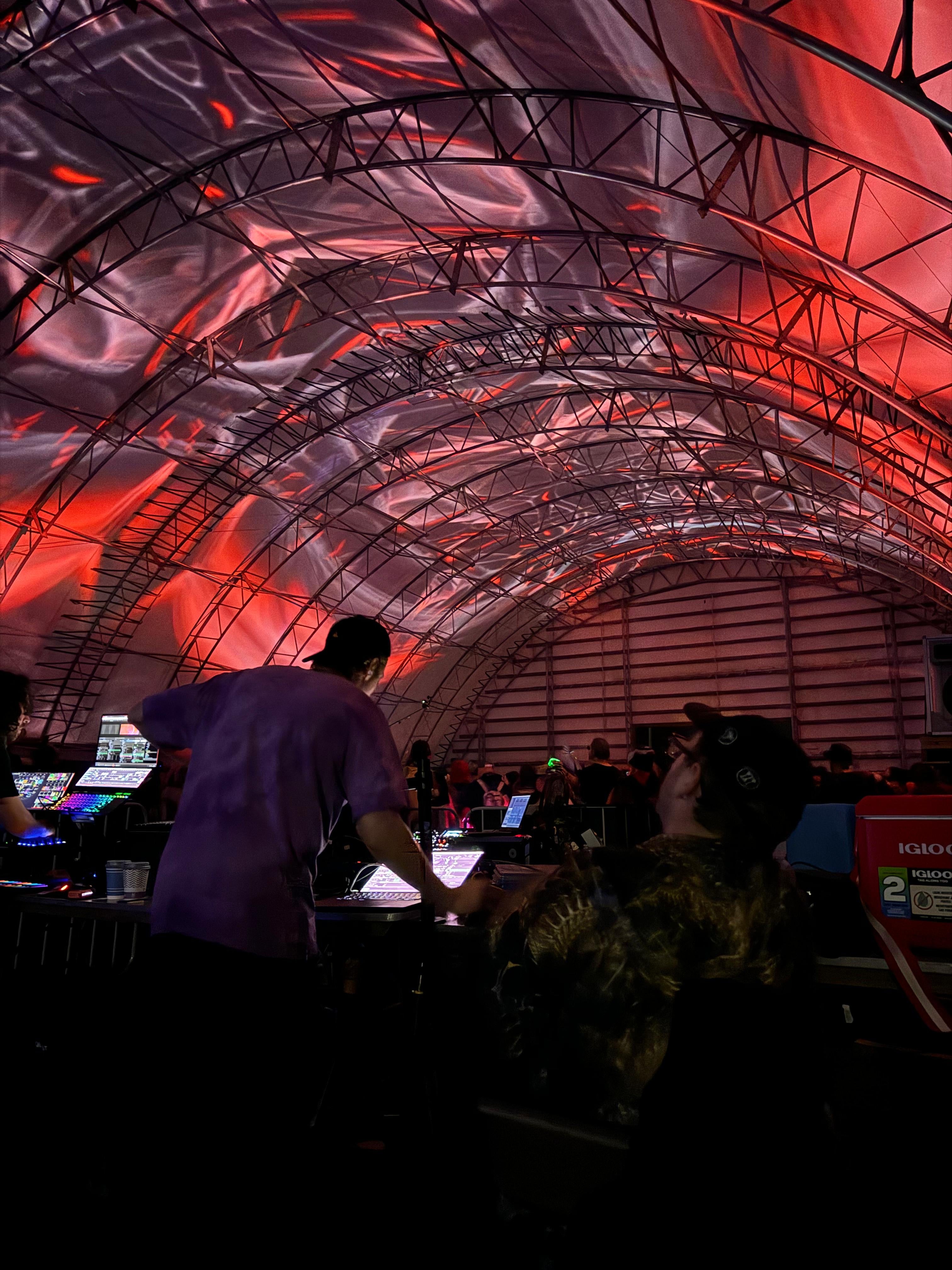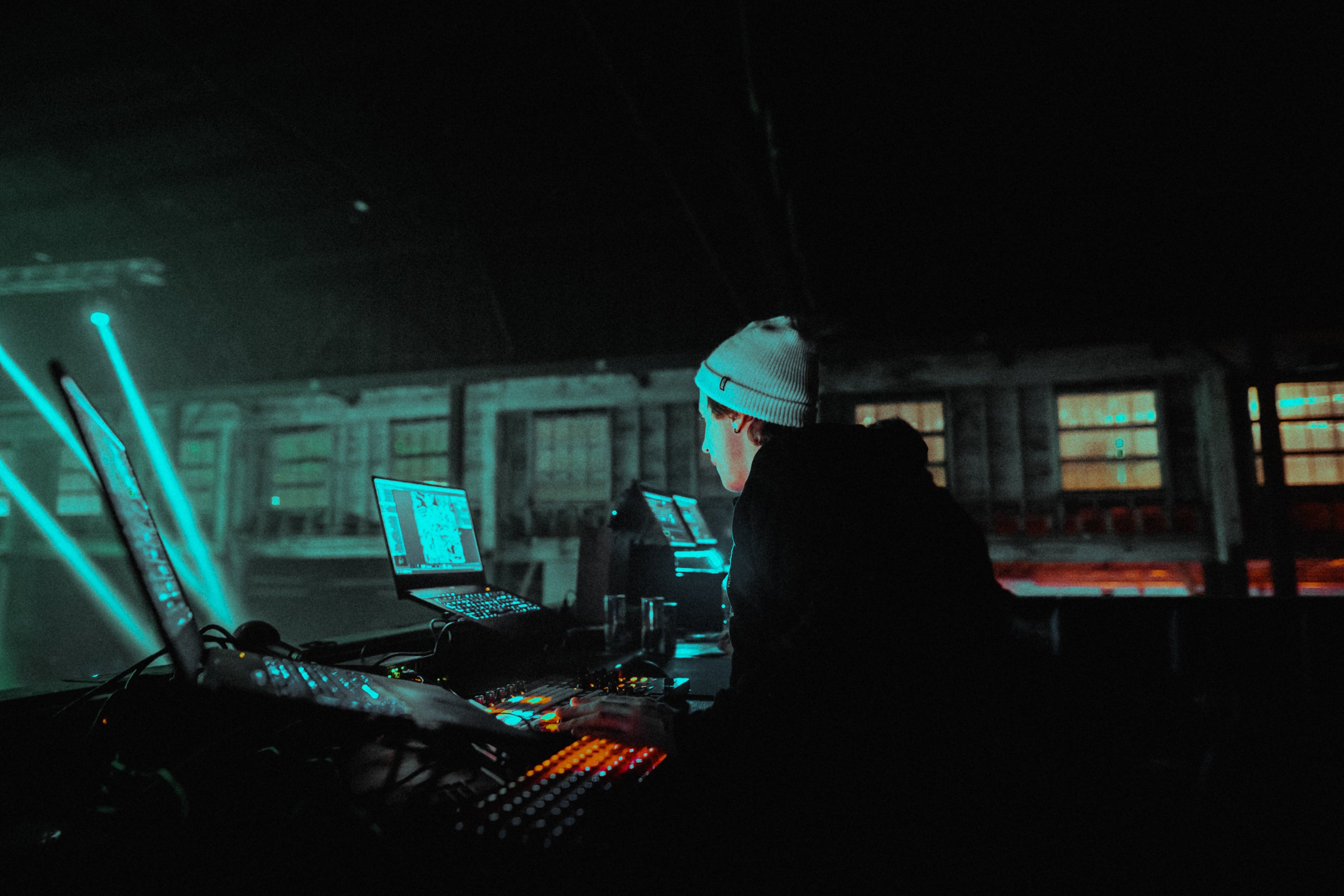
Sh1elds | neuro.studio spotlight
Written by: Emily Cinder
Chris Shields (aka Sh1elds) is a multifaceted artist with over 20 years of experience in design, shaping the visual landscapes of electronic music. Known for his ability to craft immersive, dynamic visuals, Chris has built a reputation for his innovative application of performance VJing. His background in design, music production, and skateboarding has deeply influenced his work, allowing him to merge art, sound and technology in a way that continues to challenge the conventional. This fusion of visual and auditory experiences inspires others to connect with the deeper aspects of culture, history and self-expression.
Synapse: Hi Chris, thanks for catching up with us. I thought it was important to check in and hear what’s been going on with you lately. Why don’t we start with your background — where are you from?
Sh1elds: Hey Emily! Thanks for taking the time to dive into my world a bit. I’m originally from Ann Arbor, Michigan. My parents divorced when I was 10, so we moved around a lot. Southern Michigan, Detroit, and even up north to Traverse City, where my grandmother lived. It was tough at times, especially switching schools constantly, but it also exposed me to so much diversity. That experience shaped me, it made me more open-minded and appreciative of different cultures. I also got to witness the internet boom in high school. It was a crazy time, seeing everything go digital and watching how that shift impacted the way we connect and create. Honestly, I feel like we’re still living in that “everything happening at once” era.
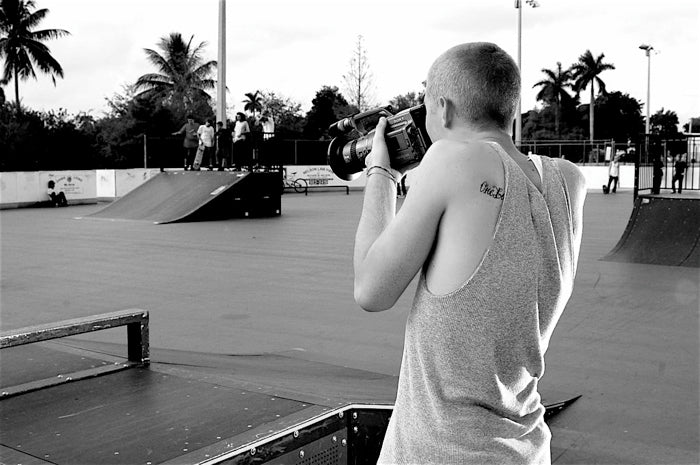
Synapse: What aspects of Michigan or your childhood have influenced your design?
Sh1elds: Michigan’s skateboarding culture had a huge impact on me. Learning film photography, shooting weddings for a couple hundred bucks and putting myself in those fast paced environments of where if you miss the shot and being in the moment, you miss everything. Detroit, in particular, has such a rich blend of rock and hip-hop, and that energy is woven into everything I do.
My dad was a drummer, and I grew up surrounded by hip-hop, parties, music, and the grittiness of Detroit’s underground. That’s where I first encountered techno and the “ghetto tech” movement from the ’90s. Skateboarding & snowboarding were my first big creative outlets. It got me into photography and filming, and I’d make skate videos for friends. That evolved into exploring music and design, influenced by everything from psychedelic jam bands to online gaming. I even moderated a forum called Skate Perception that connected skateboard photographers and videographers. It grew from a small community to 30,000 members — it was wild! Those connections shaped my career in ways I couldn’t have imagined back then.
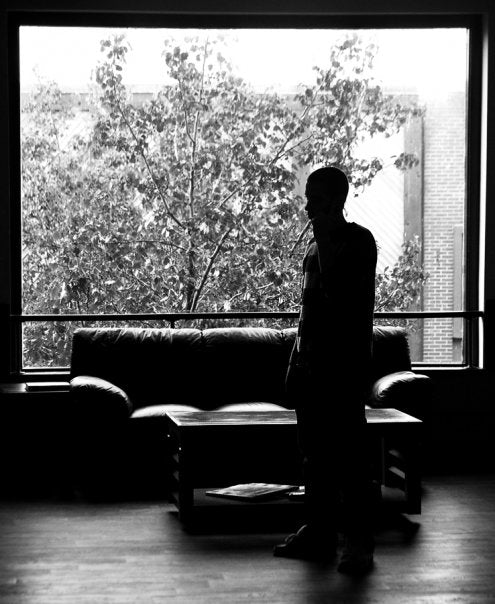
Synapse: I see how skateboarding ties into your creative process — it’s all about freedom and self-expression. Have you found a similar sense of community and creativity here in Portland?
Sh1elds: Portland has that grit I love, and the creative energy here is unmatched. Skateboarding shaped who I am. It taught me resilience, independence, and how to push through challenges.
Synapse: Time flies when you’re busy, doesn’t it? But I feel like with creative work, time stretches, it almost stands still. Do you ever feel that way?
Sh1elds: Absolutely. Creativity has this way of slowing everything down, letting you focus on the moment. The older I get, the more I appreciate that. Life moves fast when you’re always running, but when you take the time to listen, reflect and really be present, it feels like everything slows down. It’s a mindset shift — understanding that time isn’t something we’re chasing; it’s something we create.
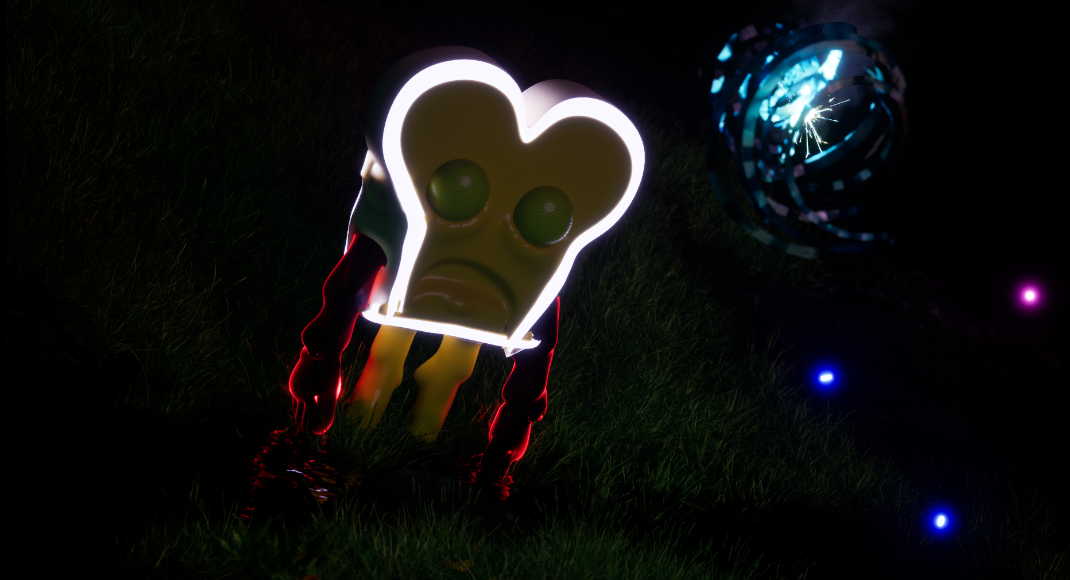
Sh1elds reflected upon how DJing has evolved from its incongruous roots in Detroit and Chicago houses to technos emerging from hip-hop and disco. He says how these genres have become more accessible thanks to technological development but warns that this excessive ability has resulted in a clash of motivations. "You got people that just download a bunch of tracks and play 'em off and make it look like it's their thing, and then you got the people who spend ten years trying to get their foot in the door, developing a sound that actually connects."
Sh1elds continues to draw parallels with skateboarding: "With skateboarding, there's no cheating. It's just board and feet. But in DJing, the lines are blurred and the promoter often plays referee." He also draws on how social media has removed focus from the emotional core of the music to personal fame. "The internet flipped that upside down with social media," he says, citing how high school popularity has bled into the music scene, where money and influence often take precedence over talent. Shields' personal journey has been tinged with success and loss in equal measure. He remembers losing five close friends to overdoses, which really hurt: "I lost five of my best friends who taught me this stuff." The loss, added to the moves the artist made between cities — Detroit, Miami, Salt Lake City, Arizona, and Portland — has set his frame toward the music community. "I've watched this whole culture grow and shift right in front of me."
Now, Chris is looking forward to paying back into the community with his experience. "I want to put the right people in the right moment, allowing each artist and every attendee to feel connected and valued," he says. His transition from DJing to VJing because of a spinal injury is yet another example of his dedication to taking part without being in the middle of the action. "I couldn't bend over, and I couldn't really get into DJing anymore ... so I took up VJing to stay part of the culture," he says. Shields now finds fulfillment in supporting visual artists and curating experiences that tap emotionally into the spirit of the scene. "It's almost like you're an admin, you're the orchestra that creates those moments."
On the technical side, Shields has developed expertise in creating 3D models using geo grids from Google Maps. “It uses the geogrid from Google Maps to then, like, give you out an object or an FBX or like a ply file that then you could bring into After Effects,” he explains. Having used
After Effects since 2007, Sh1elds has become a go-to resource for fellow VJs and artists, often helping others with technical issues. He emphasizes his willingness to share knowledge and contribute to efforts in technical education, straying from gatekeeping information. Shields is committed to fostering a community around his work. “I want to be able to help because I understand that if people don’t have the tools, they stop doing what I’m doing.” His dedication to supporting others is reflected in his approach to mentorship. “I would never go and take credit for any of that shit,” he added, stressing that his focus is on helping others understand and appreciate the work he does. Shields often connects with others through Discord, offering guidance on everything from equipment choices to personal struggles.
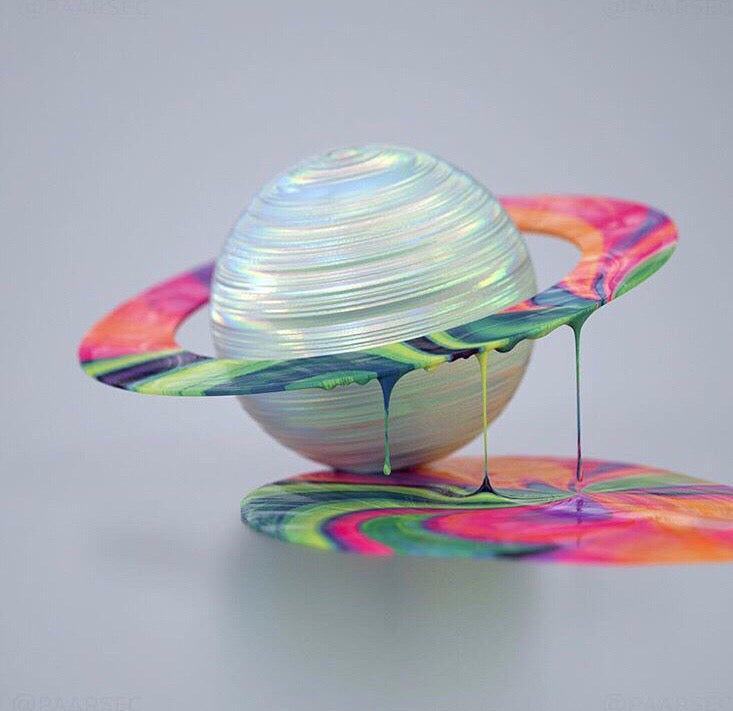
Synapse: You’ve been through a lot — moving between cities, losing close friends, and even shifting from DJing to VJing after your spinal injury. How have those experiences shaped your work and perspective?
Sh1elds: Losing five close friends to overdoses hit me hard. Those were the people who taught me so much about music and life. Moving around — Detroit, Miami, Salt Lake City, Arizona, and now Portland — gave me a unique perspective on how cultures and communities evolve. My transition from DJing to VJing was a big turning point. After my spine surgery injury, I couldn't DJ like I used to, it hurt to hunch over the dj booth and be into it. But I wasn’t ready to leave the scene. VJing & creative direction allowed me to stay involved, creating visual experiences that complement the music. It’s like being the conductor of an emotional symphony of color. You’re orchestrating moments for people to connect with the music and each other.
Synapse: What drives you to keep creating and giving back to the community?
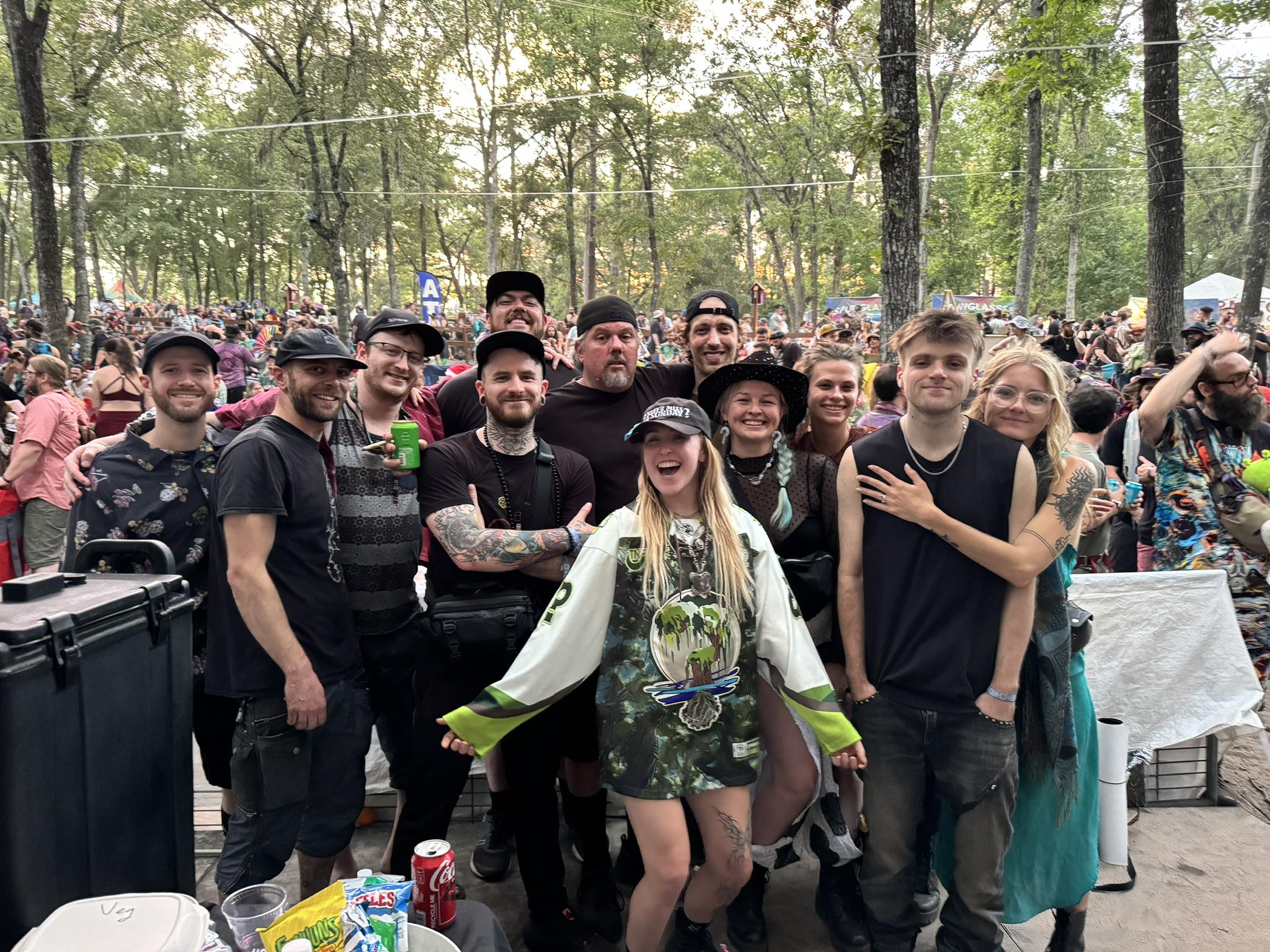
Sh1elds: I’ve always believed in helping others. Sharing knowledge, supporting artists, and mentoring new talent are huge for me. I want to break down barriers and make tools accessible so more people can create. Gatekeeping kills innovation, and I’d rather see others thrive because of what I can share. For me, it’s about more than just art or music — it’s about empowering people to connect with themselves and their history. Too often, we get distracted by social media or materialistic goals, and we lose sight of what really matters. I want to remind people that there’s value in creating something authentic, in understanding where we come from, and in building a stronger, more connected community.
Synapse: That’s a beautiful sentiment, Chris. Any final thoughts you’d like to share?
Sh1elds: I’ve worked hard, struggled, and sacrificed to get here, and I want to help others see their own potential. There’s so much more to life than chasing trends or numbing yourself with distractions. To my friends and collaborators: I hope you get the recognition you deserve. Let’s keep building something meaningful together.
